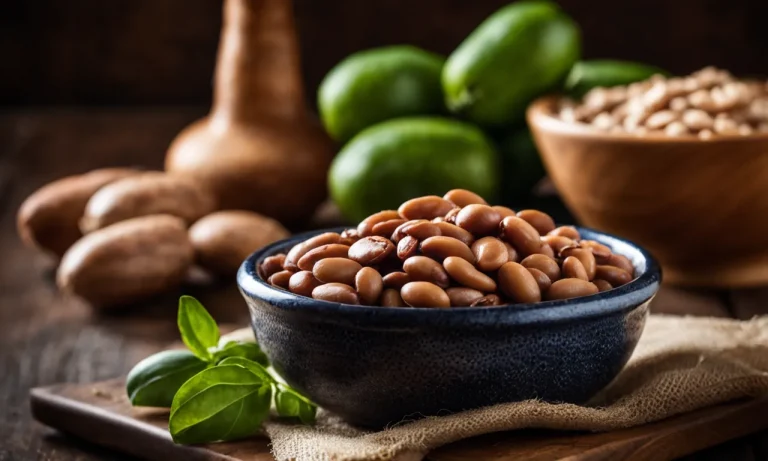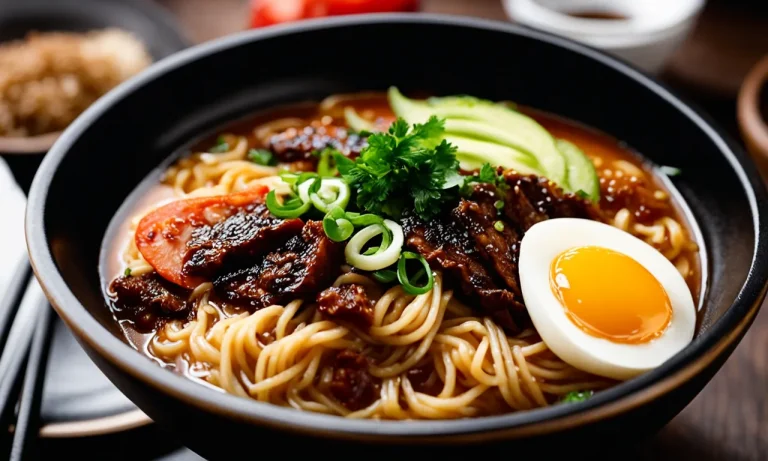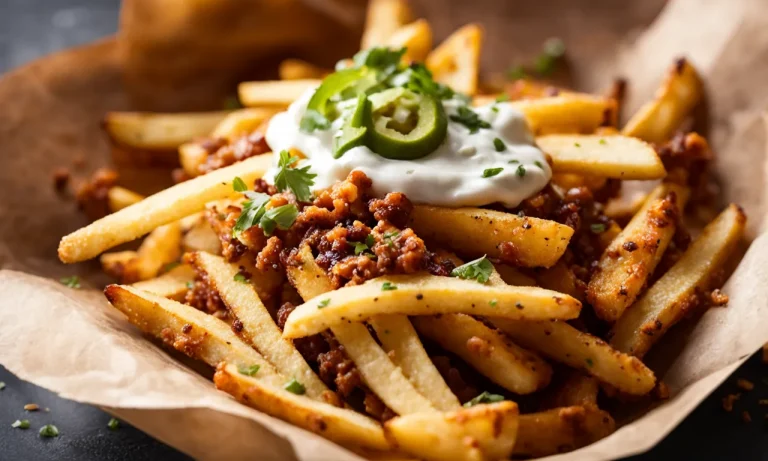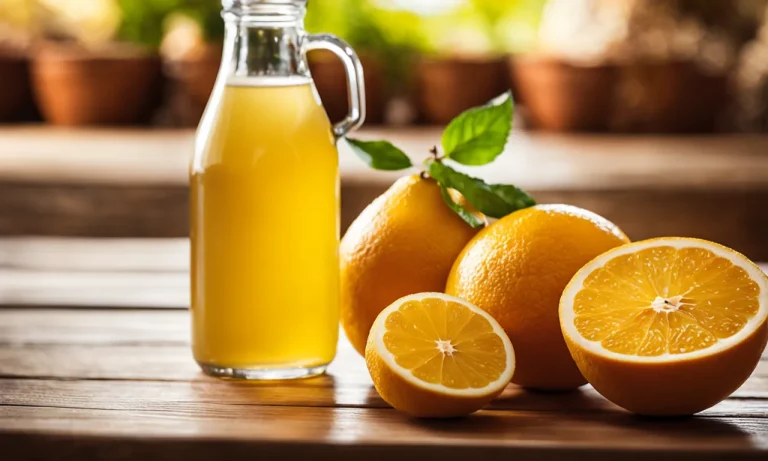Is Curry Sauce Vegan? Examining Common Ingredients
Curry sauce has a warm, aromatic flavor that can take vegan dishes to the next level. But with its blend of spices, vegetables, and creaminess, is curry sauce actually vegan? This question is important for vegans and others avoiding dairy.
If you’re short on time, here’s a quick answer: Curry sauce may or may not be vegan depending on the specific ingredients used. Some recipes contain dairy, while others rely on vegan ingredients for creaminess.
In this comprehensive guide, we’ll analyze the typical ingredients found in curry sauces, discuss which ones may be animal-derived, provide tips on how to “veganize” recipes, and suggest delicious dairy-free, plant-based curry sauce alternatives to buy or make at home.
What Makes a Food Product Vegan?
When determining whether a food product is vegan or not, there are certain criteria that need to be met. Veganism is a lifestyle that avoids the use of animal products or byproducts, which includes not just meat and dairy, but also any ingredients derived from animals.
To determine if a food product is vegan, it is important to carefully examine the ingredients list and understand what each ingredient entails.
No Animal Products or Byproducts
One of the key factors that make a food product vegan is the absence of any animal products or byproducts. This means that ingredients such as meat, fish, poultry, eggs, dairy, and honey should not be included in the product.
Additionally, any ingredient derived from animals, such as gelatin, whey, or casein, should also be avoided. Veganism aims to minimize harm to animals, so it is essential to ensure that no animal-derived ingredients are present in the food product.
Reading Labels Carefully
When shopping for vegan products, it is crucial to read labels carefully. The ingredients list will provide valuable information about the composition of the food product. Look out for any ingredients that are derived from animals or have animal-related terms.
Some common non-vegan ingredients to watch out for include whey, casein, lactose, egg whites, gelatin, and honey. Familiarizing yourself with these terms will make it easier to identify whether a food product is vegan or not.
It’s also worth noting that some food products may be labeled as “vegetarian” but not necessarily “vegan.” Vegetarian products may still contain ingredients like dairy or eggs, which are not considered vegan.
Therefore, it is important to look for specifically labeled vegan products or carefully examine the ingredients list to ensure it aligns with your dietary preferences.
For more information on veganism and determining whether a food product is vegan, you can visit reputable websites such as Vegan.org or PETA.org. These websites offer comprehensive guides and resources to help individuals adopt a vegan lifestyle and make informed choices about the foods they consume.
Common Curry Sauce Ingredients
Spices and Herbs
One of the key components of curry sauce is the blend of spices and herbs that give it its distinct flavor. Common spices found in curry sauce include turmeric, cumin, coriander, and fenugreek. These spices not only add incredible flavor to the sauce, but they also offer various health benefits.
Turmeric, for example, is known for its anti-inflammatory properties, while cumin is rich in antioxidants.
Did you know? The combination of spices used in curry sauce may vary depending on the region or the specific recipe. Some curries may use more heat-packed spices like chili powder or cayenne pepper, while others may have a milder flavor profile with spices like cardamom or cinnamon.
Vegetables
In addition to spices, curry sauce often includes an array of vegetables. Common vegetables found in curry sauce include onions, garlic, ginger, and tomatoes. These vegetables not only add depth of flavor but also contribute to the nutritional content of the sauce.
Onions and garlic, for example, are rich in antioxidants and have been linked to various health benefits, including improved heart health.
Fun fact: Some variations of curry sauce may also include vegetables like bell peppers, carrots, or potatoes, adding even more texture and flavor to the dish.
Liquid
To create the sauce consistency, a liquid component is necessary in curry sauce. The most common liquid used is coconut milk, which adds a creamy and rich texture to the sauce. Coconut milk is derived from the flesh of coconuts and is not only a popular ingredient in curry sauce but also in many other Asian cuisines.
Interesting fact: For those who prefer a lighter sauce, vegetable broth or water can be used as an alternative to coconut milk. This allows for a lower-calorie option while still maintaining the desired flavors.
Potential Non-Vegan Ingredients
Dairy Products
Curry sauce can sometimes contain dairy products, which would make it non-vegan. Dairy ingredients such as milk, cream, butter, or ghee can be added to enhance the flavor and texture of the sauce. It is important for vegans to carefully read the ingredient list or inquire about the sauce’s composition before consuming it.
Fish Sauce
Another potential non-vegan ingredient that could be present in curry sauce is fish sauce. Fish sauce is commonly used in many traditional Asian recipes for its distinct flavor. It is made by fermenting fish with salt and water.
Vegans who avoid all animal products would need to ensure that the curry sauce they choose does not include fish sauce.
Honey
Honey is often used as a sweetener in various sauces, including curry sauce. While some vegans may include honey in their diet, many choose to exclude it due to its origin from bees. Vegans who follow strict guidelines should check the label for honey or other bee-related ingredients.
It is worth noting that some brands offer vegan curry sauce options, specifically labeled as such. These sauces are made without any animal-derived ingredients, making them suitable for those following a vegan lifestyle.
Remember, when in doubt, it’s always a good idea to reach out to the manufacturer or check their website for information on the ingredients used in their curry sauce. Additionally, there are numerous vegan recipe websites and forums where you can find homemade curry sauce recipes that are guaranteed to be vegan-friendly.
Tips for Veganizing Curry Sauce
Curry sauce is a popular and versatile condiment that can be found in a variety of cuisines. While traditional curry sauce often contains ingredients like dairy, fish sauce, and honey, there are easy ways to veganize this flavorful sauce.
Whether you’re following a vegan diet or simply looking to reduce your consumption of animal products, here are some tips to help you enjoy a delicious vegan curry sauce.
Replace Dairy with Coconut Milk
One of the main ingredients in many curry sauces is dairy, typically in the form of cream or yogurt. However, you can easily swap out dairy products for a vegan alternative like coconut milk. Coconut milk adds a rich and creamy texture to the sauce, while also providing a subtle coconut flavor that complements the spices in curry.
Simply substitute an equal amount of coconut milk for any dairy products called for in the recipe, and you’ll have a vegan-friendly curry sauce that is just as creamy and delicious.
Swap Fish Sauce for Soy Sauce
Another common ingredient in traditional curry sauce is fish sauce, which adds a distinct umami flavor. However, fish sauce is not vegan-friendly as it is made from fermented fish. A great alternative to fish sauce is soy sauce, which also provides a savory and salty flavor.
Soy sauce is made from fermented soybeans and adds depth to the curry sauce. Use an equal amount of soy sauce in place of fish sauce, and you won’t even notice the difference.
Use Agave Nectar Instead of Honey
Honey is often used to add a touch of sweetness to curry sauce. However, honey is not considered vegan as it is produced by bees. To keep your curry sauce vegan-friendly, you can substitute agave nectar for honey. Agave nectar is derived from the agave plant and has a similar sweetness to honey.
It blends well with the other flavors in curry sauce and provides a hint of sweetness without the use of animal products.
By following these simple tips, you can easily veganize curry sauce without sacrificing flavor. Whether you’re cooking up a spicy Thai curry or a comforting Indian curry, these substitutions will help you create a delicious vegan sauce that everyone can enjoy.
Store-Bought Vegan Curry Sauces
When it comes to vegan cooking, finding delicious and flavorful curry sauces can be a game-changer. Many people wonder if store-bought curry sauces are vegan-friendly, as some commonly used ingredients like dairy or fish sauce may not align with a vegan diet.
In this article, we will examine three popular store-bought vegan curry sauces to help you make an informed decision.
Thai Kitchen
Thai Kitchen is a well-known brand that offers a range of curry sauces. Their Green Curry Paste and Red Curry Paste are both vegan-friendly options. These pastes are made with ingredients like lemongrass, galangal, and Thai chilies, which are blended with spices to create a rich and aromatic curry sauce.
They are free from any animal products, making them suitable for vegans. Thai Kitchen’s curry pastes can be found in most grocery stores and online retailers.
Maya Kaimal
Maya Kaimal is another brand that produces vegan curry sauces. Their Madras Curry and Tikka Masala sauces are popular among those following a vegan lifestyle. These sauces are made with a blend of spices, tomatoes, and other flavorful ingredients, creating a delicious and authentic curry experience.
Maya Kaimal’s curry sauces are available in many supermarkets and can also be purchased online.
Trader Joe’s
Trader Joe’s, a beloved grocery store chain, also offers vegan curry sauces. Their Thai Red Curry Sauce and Yellow Curry Sauce are both vegan-friendly options. These sauces are made with a combination of coconut milk, herbs, and spices, resulting in a creamy and flavorful curry.
Trader Joe’s vegan curry sauces are affordable and can be found in their stores nationwide.
When choosing a store-bought vegan curry sauce, it’s important to check the ingredients list for any potential non-vegan additives. However, these three brands mentioned above provide reliable and tasty options for those looking to enjoy a vegan curry at home.
Remember to always read the labels and make sure the product is suitable for your dietary needs.
Conclusion
While many curry sauces rely on ingredients like spices, vegetables, and coconut milk, some recipes do incorporate non-vegan ingredients for flavor and creaminess. Checking labels and swapping dairy, fish sauce, and honey for vegan substitutions ensures curry sauce can be part of a plant-based diet.
With an array of ready-made vegan curry sauces on shelves and easy ingredient tweaks, vegans can craft flavorful curry dishes at home. A warming curry sauce over rice or vegetables makes for a comforting vegan meal.







